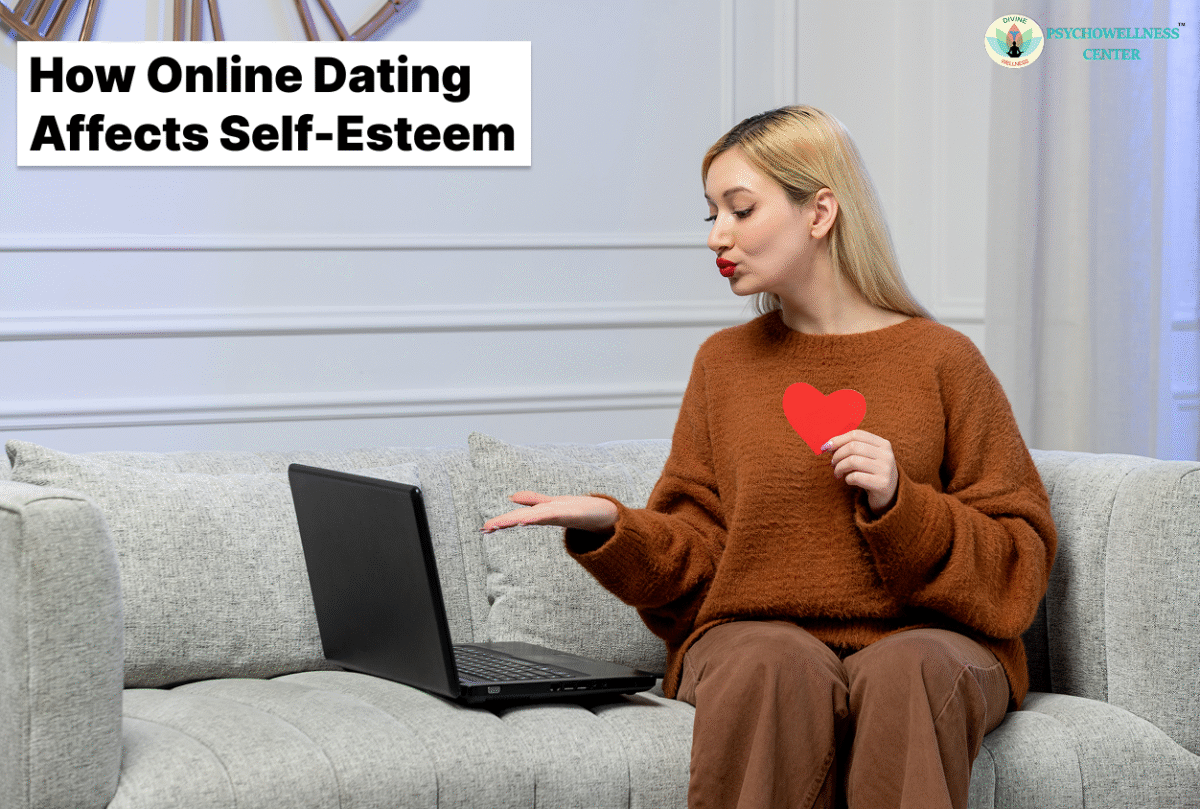Online dating has become a significant part of meeting new people and building relationships in today’s digital world. While these platforms offer convenience and foster new connections, their effect on self-esteem is important to understand. This blog aims to make people aware of the psychological impact that online dating can have, explain the mechanisms behind these effects, and offer meaningful guidance for healthier digital experiences.
The Fascination and Reality of Online Dating
With the rise of platforms like Tinder and Bumble, etc, millions of people now turn to online dating for companionship and love. The appeal lies in the wide pool of choices and the ease of connecting. For many, the process starts with building a profile, choosing photos, and writing bios designed to stand out. At first, receiving likes, matches, or messages can give a quick boost in self-esteem. These interactions can be validating and exciting, making users feel attractive and desirable.
However, this positive feeling is often short-lived. If matches or responses slow down, the same platforms can chip away at confidence. The highs and lows of online dating often create a dependency on validation, making self-worth fluctuate based on attention from strangers.
The Psychological Mechanisms
Online dating platforms are built around instant feedback, swiping, matching, and messaging. This gamified approach encourages people to seek approval, measure their value against others, and depend on external opinions for self-worth. Users report feeling anxious when building their profiles, worrying about whether their photos are good enough or if their bios are interesting. Some may second-guess themselves, wondering if they fit society’s standards, leading to self-doubt even before actual interactions happen.
When users are “liked” or matched, it can lead to short-term satisfaction. But when they face rejection—such as not getting matches back or being ignored (also known as “ghosting”)—it often triggers negative thoughts. This repeated cycle can cause many people to take rejections personally and question their value or attractiveness. Some studies show that people who use dating apps more frequently are likely to experience lower self-esteem and higher levels of loneliness compared to those who do not use them.
Rejection and Self-Esteem
Rejection is a normal part of life, but online dating can magnify its impact. Because of the large number of potential matches and the ease of rejecting or ignoring someone with just a swipe, negative feelings can build up fast. Users may internalise these rejections, feeling that something is wrong with them, and over time, this repeated experience can erode self-esteem. Frequent rejection or ghosting can also contribute to feelings of anxiety, stress, and even depression.
Appearance Anxiety and Body Image
Another consequence of online dating is an increased focus on physical appearance. Many apps are designed so that users judge profiles based on photos first and foremost. This effect can lead to more self-consciousness, body image concerns, and frequent comparisons with others. Many users report being dissatisfied with their appearance and feeling pressured to meet unrealistic beauty standards set by others online. For vulnerable individuals, this impact on body image can be serious and long-lasting.
Short-term Gains, Long-term Risks
Some users feel successful on dating apps (such as receiving many matches or positive messages), which can provide a short-term boost in self-esteem and even improve life satisfaction, at least temporarily. However, these positive effects are usually not long-lasting and can quickly be offset if attention drops or rejection is encountered. Therefore, the long-term impact of online dating on self-esteem depends greatly on personal experience, expectations, and how much importance is placed on online validation.
How to Use Online Dating More Mindfully
Given both the benefits and risks, users need to approach online dating with a balanced mindset:
- Remember that online dating profiles only show a small part of a person. Focus on building connections rather than chasing likes or comparing yourself to others.
- Set boundaries on app usage. Limit time spent swiping or checking for matches to avoid emotional exhaustion.
- Try to find validation from other sources, such as personal achievements or close relationships, rather than relying solely on online feedback.
- Recognise that rejection on dating apps is usually more about preferences and the platform’s design, not a reflection of your overall value.
- Seek support from friends or professionals if online dating starts to take a toll on mental health. Don’t hesitate to take breaks if needed.
Conclusion
Online dating has changed the way people form relationships and seek companionship, but it brings important psychological challenges. While these platforms may boost self-esteem in the short term, they can also introduce anxiety, emotional distress, or increased vulnerability for those already managing mental health concerns. If there is a history of depression, anxiety, or any psychiatric condition, it’s wise to talk to a qualified mental health professional about dating experiences.
Professional counsellors and psychologists are trained to help people build resilience, process difficult experiences, and protect emotional health during the ups and downs of online dating. Services such as TalktoAngel platform offer confidential, expert support through chat, audio, or video sessions, making help safe and accessible from home. Consulting a mental health expert isn’t just for crisis moments; it can be a proactive step to ensure healthy habits, build self-esteem, and manage stress before it gets overwhelming.
For anyone struggling with persistent negative feelings, worry, or self-doubt triggered by online dating, reaching out to a trusted psychologist, therapist, or counsellor can make a significant difference. Prioritising emotional safety—whether dating online or in person—should always be the top priority, ensuring mental well-being and peace of mind throughout the journey.
Contribution: Dr. R.K. Suri, Clinical Psychologist, and Ms. Swati Yadav, Counselling Psychologist
References
- BestWithinYou. (2024, September 18). “Self-Esteem and Dating Apps.” https://bestwithinyou.com/blog/mental-health/self-esteem-and-dating-apps/
- TalktoAngel. (2024, December 16). “Online Counselling | Online Therapy for Dating Concerns.” https://www.talktoangel.com
- Manochikitsa. (2025, September 26). “Online Counselling, Therapy, & Psychologist in India.” https://manochikitsa.com

